
Tom Jackson, the collector behind the popular Twitter account, picks six of his favourite postcards – and their often incongruous messages – from his new book
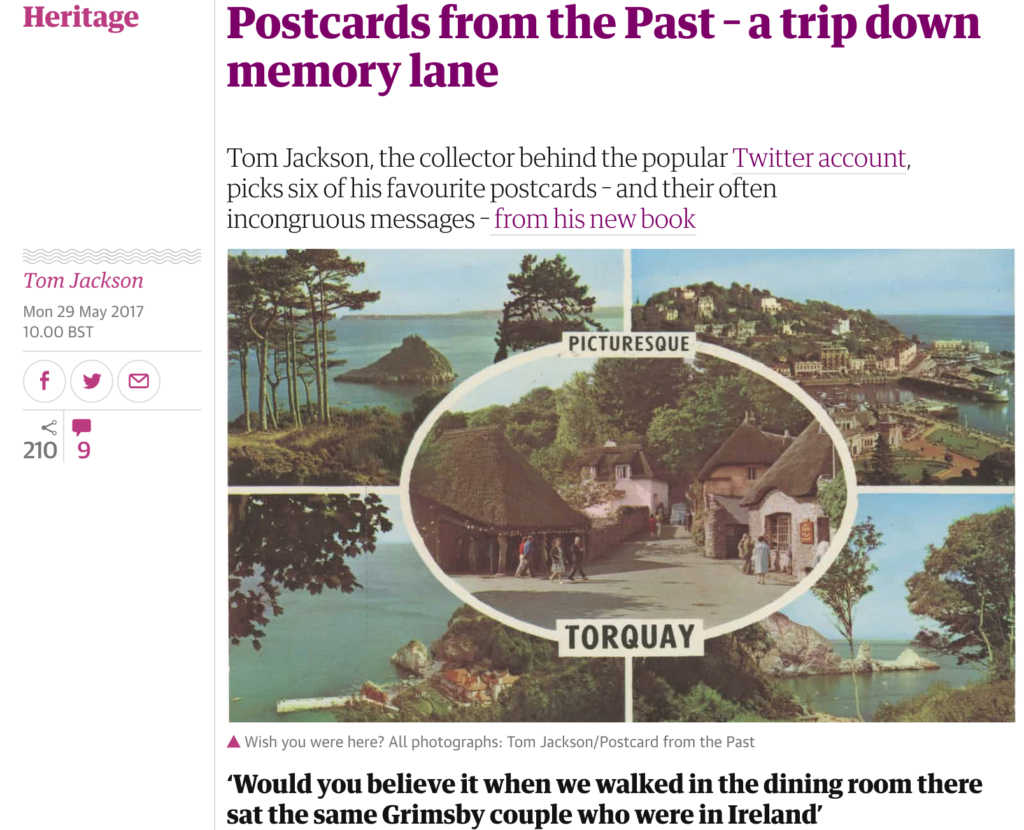
In his introduction to the book, Mark Haddon refers to my cards with their messages as ‘very short and very cryptic stories’. This formulaic multi-view card of Torquay holds a terrible secret that feels distinctly literary. The uncomfortable moment over sausages and fried bread might have dropped from a coincidence-strewn Peter Cheyney thriller. Or is it something altogether more uncanny, a story from M R James or Robert Aickman? Imagine, you try guesthouse after guesthouse but there is no escape – still you are greeted every morning by the same cheery couple from Grimsby …
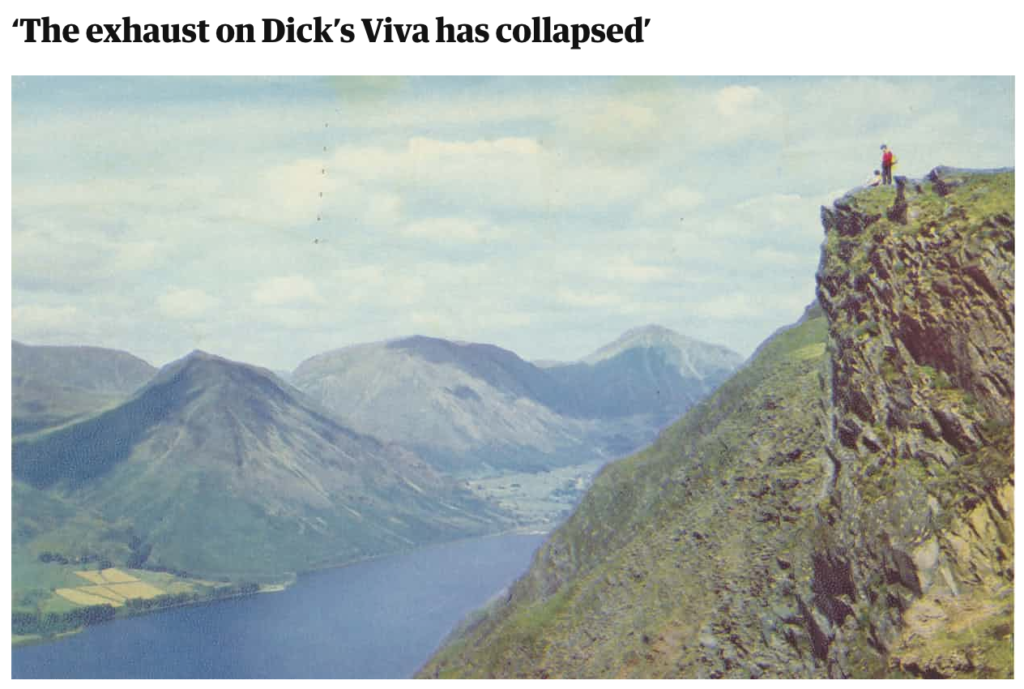
A beautiful, heroic view. Two walkers stand on a rocky peak in Cumbria, overlooking Wast Water, England’s deepest lake. Rarely does the British landscape look so vast and romantic. But the message tells a different story: here Caspar David Friedrich gives way to Kenneth Charles Williams in some not-quite-double-entendre. Car trouble is a very common thread on cards from the 1960s: clutches go, headlamps need replacing and flat tyres interrupt the snake of traffic to the coast. But, on postcards at least, these problems are met with patience. Raised voices and recriminations aren’t generally recorded.
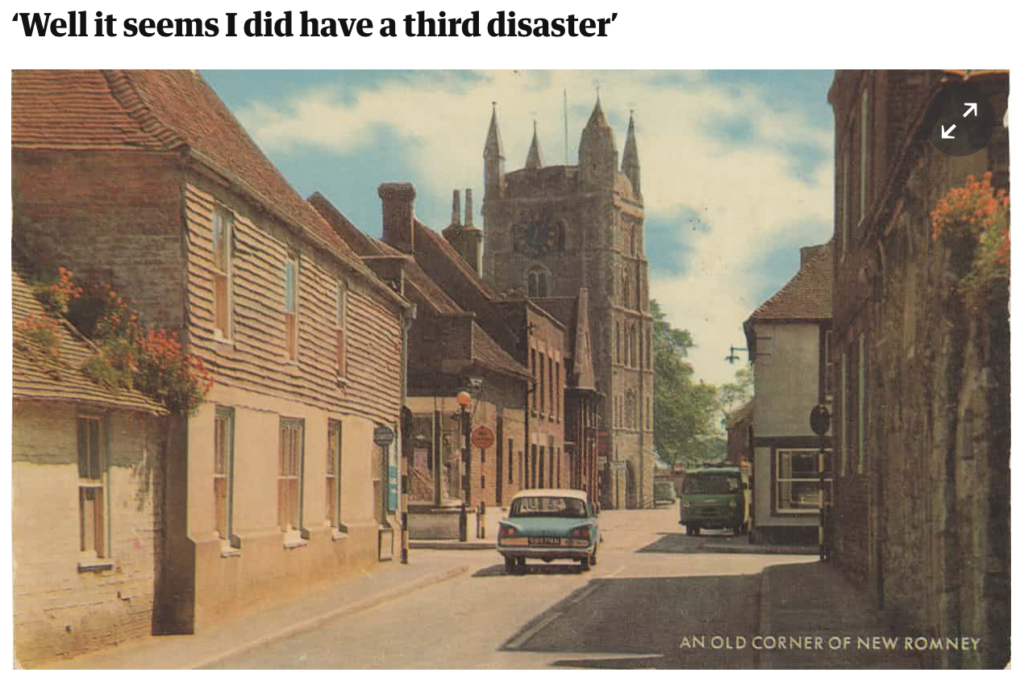
The image is a glorious study in English tranquillity: the beautiful dreamlike stillness of a bleached August afternoon in New Romney, Kent. A Caribbean Turquoise Ford Consul waits forever at an empty crossroads. But in sharp contrast to the card image, it appears the correspondent is dogged by calamity, three times cursed in fact. What is the disaster? What were the previous two? And will this third misfortune finally break the charm to set him or her free?
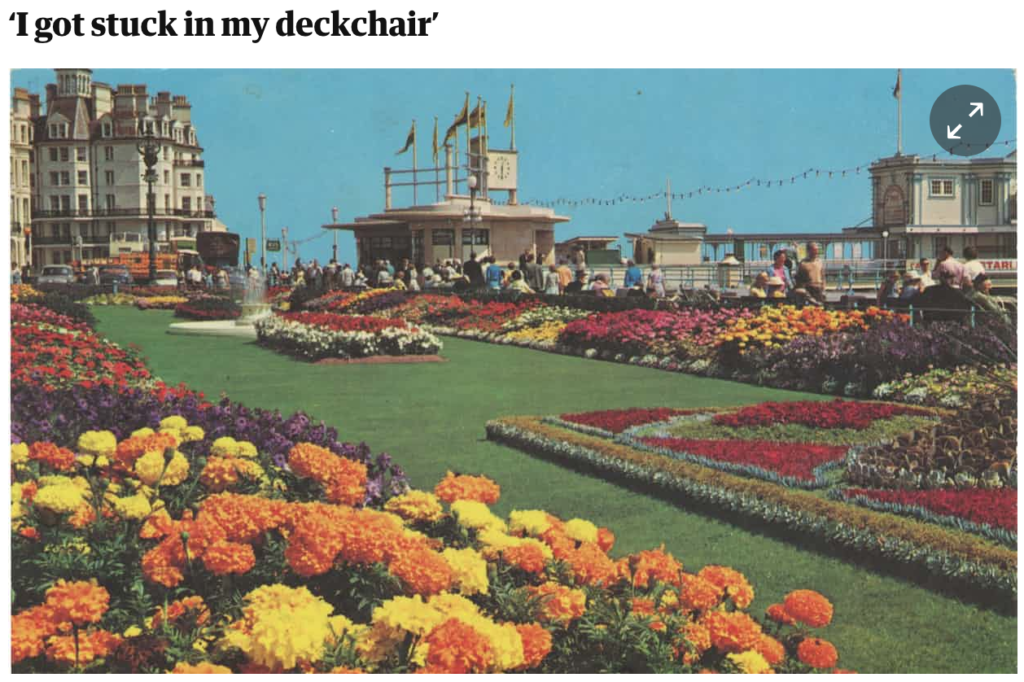
This card, showing the Carpet Gardens on Eastbourne’s promenade, has a splodge of brown residue on the back. It might be sweet tea, could possibly be blood, but looks more like gravy. I haven’t licked it. Card after card from this era relates the holidaymaker’s beach agenda: “Went on the beach today”, “Hope to go on the beach tomorrow”, “Wish the weather were better so we could go on the beach”. This correspondent tried, but it sounds like they made a mess of it. 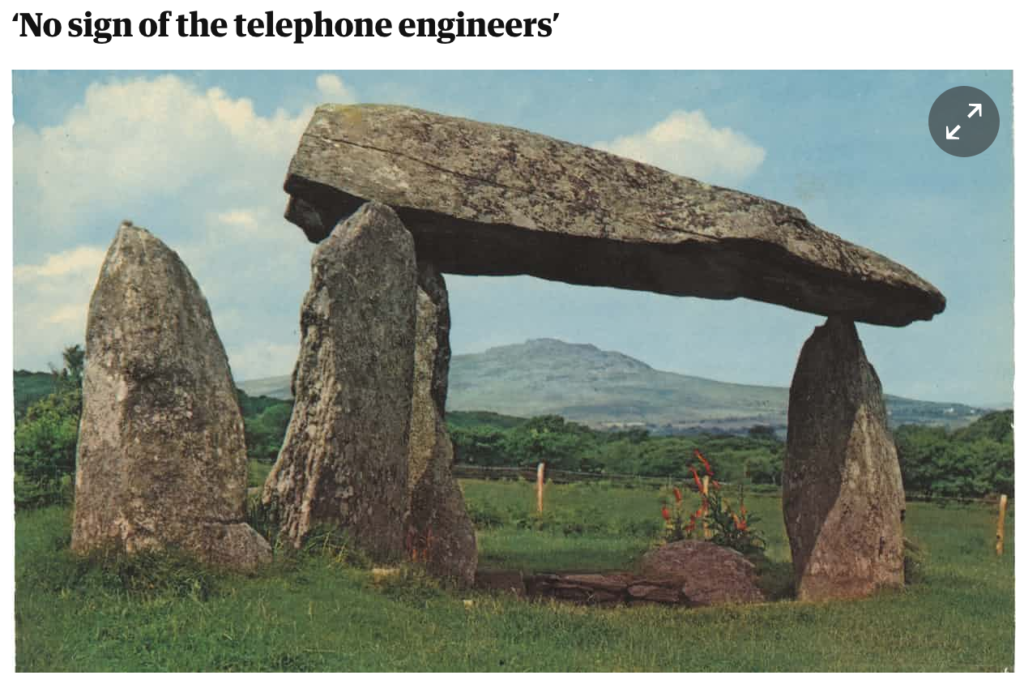
From this distance, we can’t help making an inappropriately direct connection between the message and the image – an unlikely conjunction between the 5,500-year-old Pentre Ifan monument in Pembrokeshire and some 1960s GPO uniformed engineers who failed to turn up. Postcard messages are a combination of cliche and fresh, striking and surprising detail. And a visual pun leaps out of this one: the stone structure as giant megalithic telephone handset.
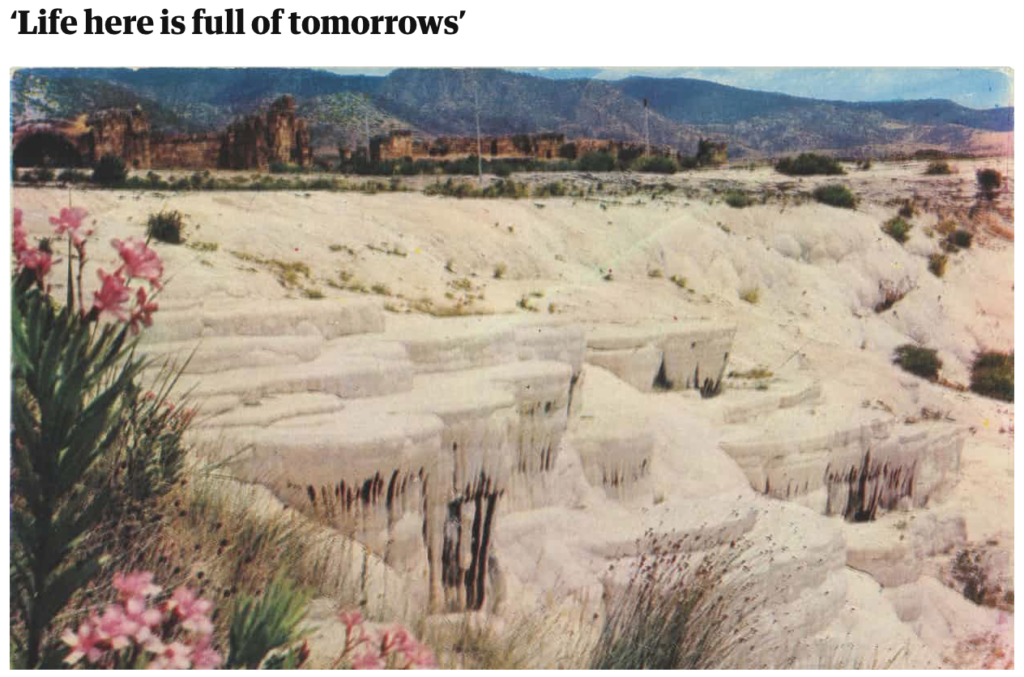
It may be the Turkish light that inspired the correspondent here, or the beauty of the bizarre and unique travertine terraces at Pamukkale. The limited space on the back of a postcard can force concision, meaning some messages read like ungrammatical telegrams while others have a poetry to them that is immediately arresting. The world – or at least someone’s mantelpiece – is better for this card with this message of hope: Maureen’s words are as sublime and affecting as the pink oleander in the sunshine.
Postcard From The Past by Tom Jackson is published by Fourth Estate, £9.99; to order a copy for £8.49, visit the Guardian Bookshop. Follow Tom’s daily Twitter posts at @pastpostcard
